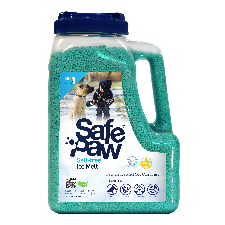5 Big Challenges Of Removing Snow From Gravel Driveway
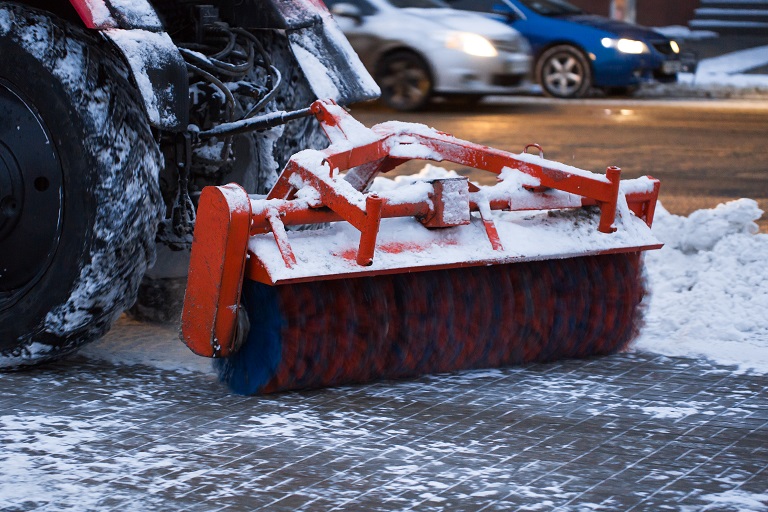
Many people love gravel driveways. However, snow removal isn’t as easy on a gravel driveway as on paved driveways. It’s easy to damage the driveway when clearing snow from it, especially if you don’t have access to the right equipment.
A gravel driveway is the least expensive to install initially, but it requires the most maintenance long-term. Gravel driveways are not recommended for use in areas that receive heavy snowfall. Additionally, gravel driveways require frequent resealing and regular maintenance to withstand extreme temperatures and weather conditions. In this article, we’ll discuss the main challenges of removing snow from a gravel driveway.
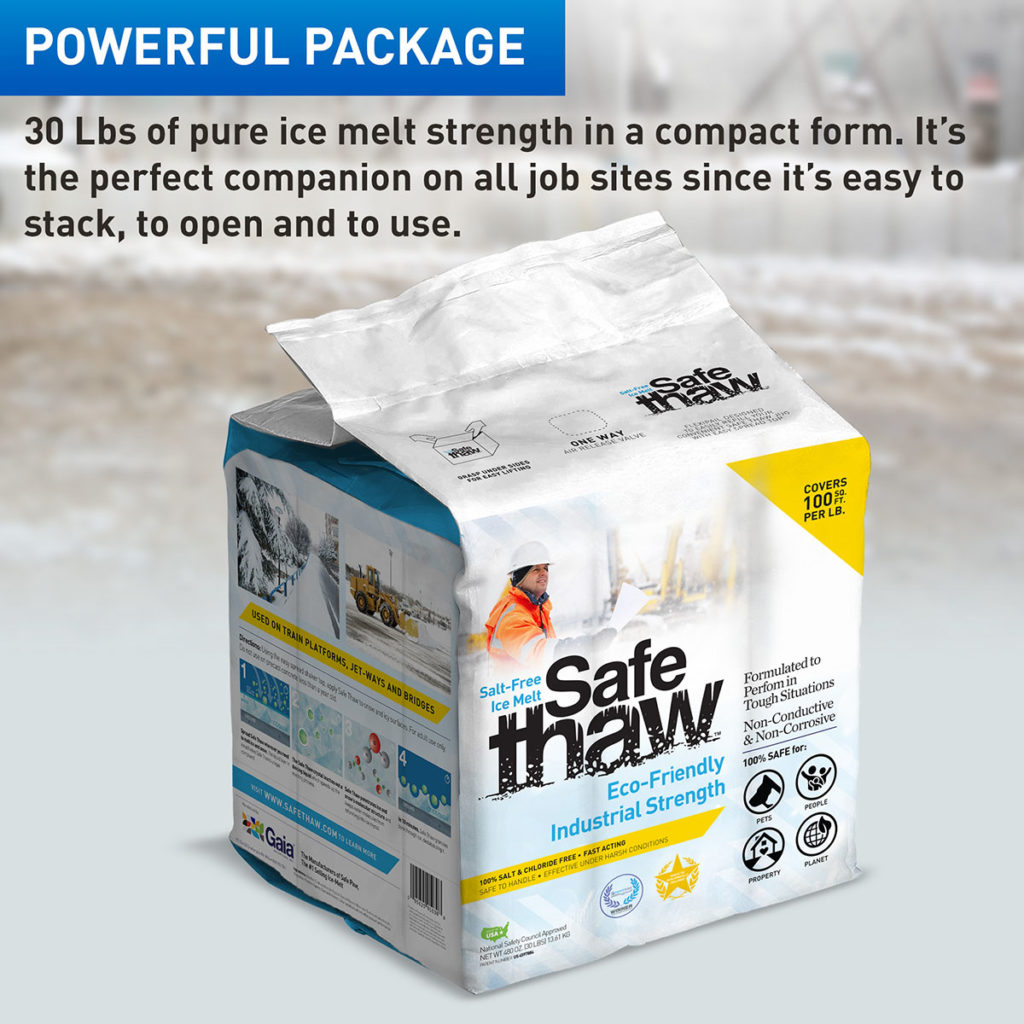
Safe Thaw
Safe Thaw was created as the ice management solution for tough winter environments. Ideal in commercial and industrial properties, shops, government agencies, bridges, and construction.
5 Challenges With Gravel Driveways:
Gets Scattered Around
Gravel can get scattered around and make a big mess. To prevent this, be sure to shovel carefully so that the gravel stays together in clumps. Erosion and washout are common problems with gravel driveways. The material can be easily displaced by heavy rain or snow, leading to other issues like potholes, reduced traction on the road surface, and even damage to your home if the water flows onto it.
Rocks Can Easily Get Damaged
One common problem with gravel driveways is damage from snowplows and snow blowers. These heavy, bulky machines are often used to clear driveways of snow during the winter months, but they can also cause a great deal of damage to your driveway if not operated properly. Be sure that whichever equipment you use has soft tires or wheels so that it doesn’t dig into the gravel and cause gouges in the surface.
Resealing Requirements
Sealing your driveway is necessary to maintain the health of your driveway and retain its strength. You should seal a gravel driveway once every 10 years, or as needed if you have had a heavy rain season.
A resealed driveway will prevent water from seeping into cracks in the surface, which means that ice won’t build up on top of the loose stones when there is freezing weather. It also prevents weeds from growing through bare areas between stones and helps prevent erosion by holding down loose stones with moisture so they can’t be blown away by wind or rain.
Finding the Best Ice Melt for Gravel Driveway
In winter, gravel driveways require special attention. It’s crucial to keep the driveway ice-free so that the drivers can navigate their way safely. Safe Thaw is the best ice melt for gravel driveways as it contains modified urea. This product has special surfactants, inhibitors, and ice melting boosters. Therefore, it can be used on any outdoor surface, including gravel, concrete, stone patios, and wood decks.
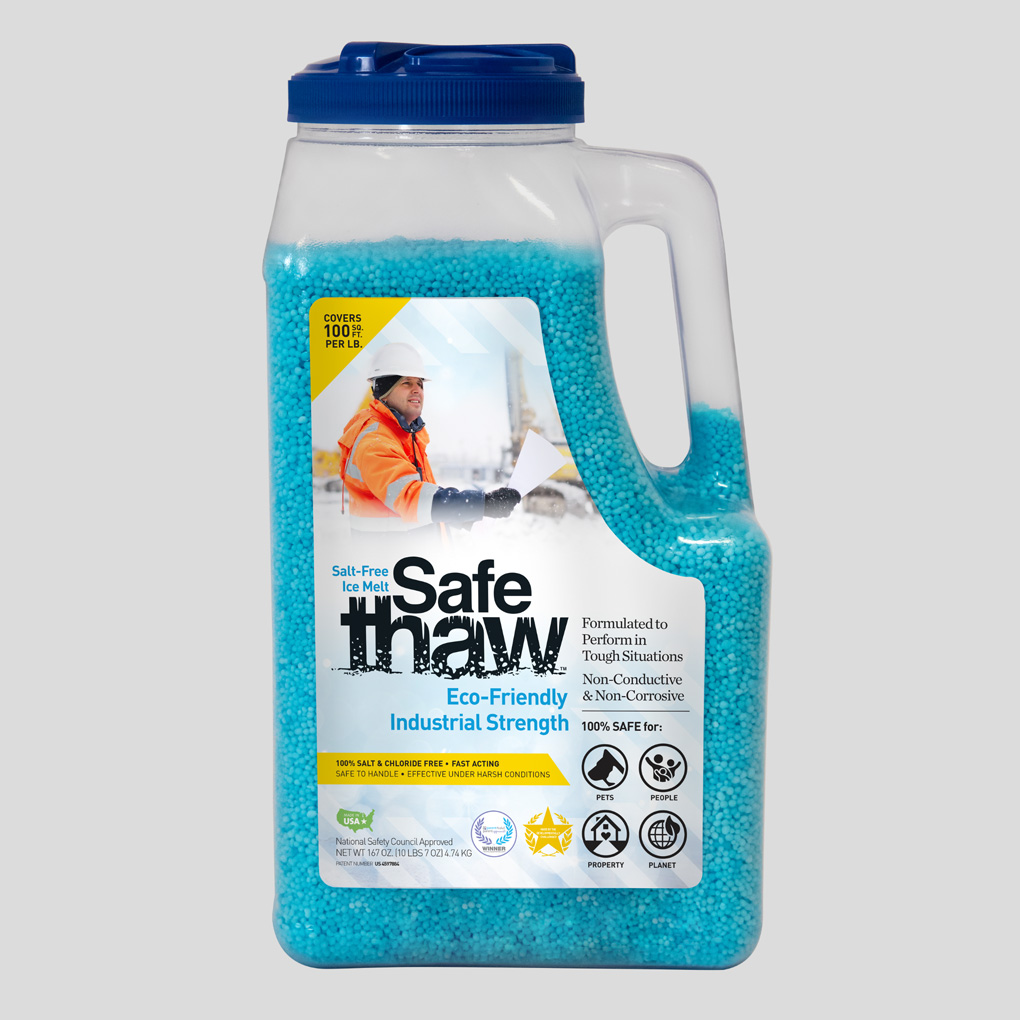
Safe Thaw
Safe Thaw was created as the ice management solution for tough winter environments. Ideal in commercial and industrial properties, shops, government agencies, bridges, and construction.
Improper Installation
It is important to ensure that the gravel is compacted correctly and that the surface of your driveway is level to avoid any issues down the line. Improper installation is common in gravel driveways and leads to further problems like cracks, erosion etc.
Melt Ice on Driveway Without Salt
Many homeowners seek ways to melt ice on the driveway without using traditional salt, which can be corrosive to concrete and detrimental to the environment. In response, Safe Thaw serves as an effective ice melt safe for driveways, formulated without salt or harmful chemicals.
Ice Melt for Driveways: Not All Are Created Equal
One key question is, does ice melt damage driveways? The answer depends on the type of ice melt used. Certain products, especially those with harsh chemicals, can indeed damage both asphalt and concrete. However, Safe Thaw, an ice melt for concrete driveways and ice melt for pavers, is formulated to be non-corrosive, offering protection and ice melting capability.
How Much Ice Melt for Driveway Use?
The required amount of ice melt for driveways will depend on the driveway’s size and the ice’s thickness. Typically, a 50lb bag of Safe Thaw should cover approximately 1,000 square feet. Remember, it’s better to start with a smaller amount and add more if necessary, rather than applying too much at once.
Packing Gravel Driveway Before Winter Sets In
Another issue many homeowners face is packing gravel driveway properly before the first snowfall. If the gravel isn’t compacted well, snow shovels or blowers end up digging into loose stones instead of clearing snow. The result? More scattered gravel, uneven patches, and a surface that becomes harder to maintain throughout the season.
A simple fix is re-compacting your driveway each fall. Even driving over the gravel with a heavy vehicle can help press it down, but using a plate compactor or roller does the job best. A firmly packed driveway not only reduces erosion but also allows ice melt products like Safe Thaw to spread more evenly across the surface, making them more effective when temperatures drop.
How Thick Should Gravel Driveway Be To Survive Harsh Winters?
While installation might already be done, it’s worth asking: how thick should gravel driveway be to withstand repeated snowstorms and freeze-thaw cycles? If your gravel layer is less than 4 inches, you’ll likely notice more ruts and drainage problems after a heavy winter. A base of 8–12 inches, layered with coarser stone at the bottom and finer gravel at the top, creates a more stable structure.
That extra thickness helps prevent frost heaving, minimizes muddy spots during thaws, and ensures the surface remains intact even when snow shovels scrape across it. Think of it as investing in durability now to avoid major resurfacing costs later.
Choosing The Right Snow Shovel For Gravel Driveway
Clearing snow from gravel is already tricky, but using the wrong tool can make it worse. A snow shovel for gravel driveway should avoid sharp metal edges that dig into the surface. Instead, choose shovels with rubber or plastic edges, or even push-style shovels that gently roll snow off without displacing gravel.
For longer driveways, snow blowers with adjustable skid shoes are another good option. These keep the auger slightly above the gravel, clearing snow while leaving the stones in place. It’s a small adjustment that makes a big difference in preserving the surface through repeated storms.
How To Get Grass Out Of Gravel Driveway Before Snowfall
Another maintenance step often overlooked is tackling weeds and grass before winter arrives. Wondering how to get grass out of gravel driveway? Clearing vegetation now helps prevent weak spots where snow and ice can settle, turning into slippery patches when freeze-thaw cycles kick in.
Manual removal with a rake or flat shovel works for small areas, while a weed torch or eco-friendly herbicide can handle larger driveways. If grass returns every year, consider adding a layer of landscape fabric beneath the gravel during your next repack. This barrier blocks regrowth and keeps your driveway tighter and more resilient through snow season.
100% salt & chloride-free, fast acting Ice Management Solution
Conclusion
Gravel driveways bring their own set of winter challenges, and preparation makes all the difference. By focusing on packing gravel driveway well, ensuring the right thickness, choosing the best snow shovel for gravel driveway, and learning how to get grass out of gravel driveway before the freeze, you set yourself up for fewer problems when storms hit.
But no matter how well you prepare, managing ice safely remains critical. Harsh salts can scatter gravel, damage the surface, and harm surrounding soil and vegetation. Safe Thaw, with its 100% salt- and chloride-free formula, is not only safe for gravel driveways but also strong enough for industrial and commercial use where performance can’t be compromised.
When combined with smart gravel maintenance, Safe Thaw ensures your driveway remains stable, slip-free, and protected all season long.
FAQs
Try Also Our Other Winter Safety Products:
Traction Magic
Stay safe on slippery surfaces with a product that’s 100% natural and safe for pets, people, and your property. Whether it’s sidewalks, steps, or even your car’s traction, Traction Magic is the go-to choice.
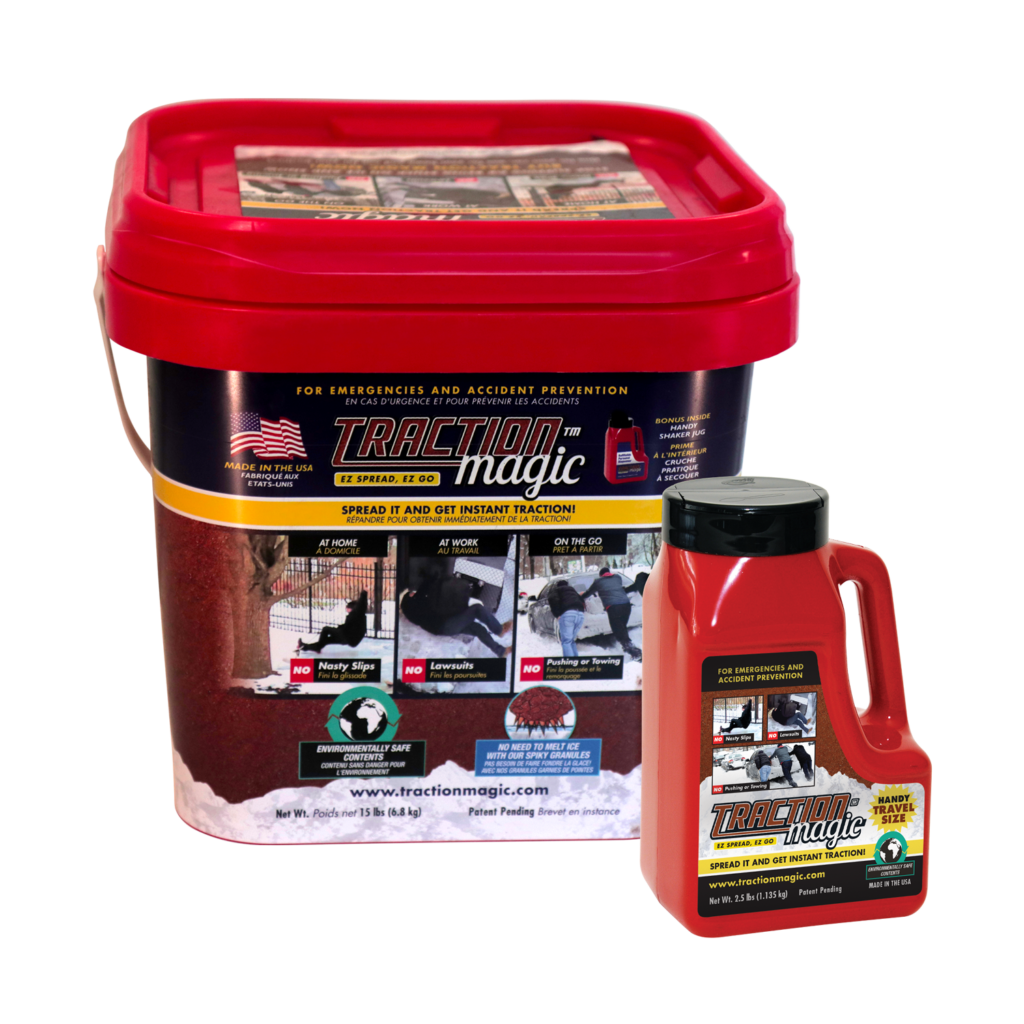
Safe Paw
The Original and #1 Selling Pet and Child Safe Ice Melt for over 20 years. Guaranteed environmentally safe –It won’t harm animals or children, and it won’t damage your property. That’s Safe Paw. Safe Paw can change how winter affects our planet.
